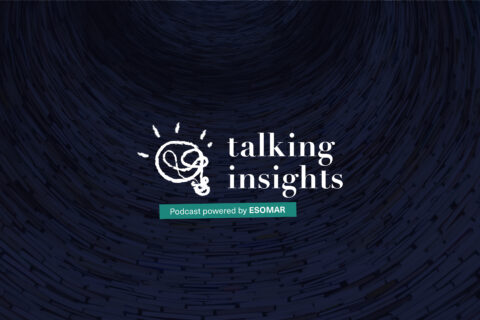In the article I wrote to kick off this series called ‘The Seven Deadly Sins of Customer Motivation’ I review several major pitfalls that often plague companies with their data management capabilities. This typically results in hindering the ability to understand and ultimately motivate their customers, which can deteriorate loyalty and hurt the bottom line. This piece looks in-depth at the sin of procrastination.
Perhaps the ‘holy grail’ for most brands is achieving the marketing buzzword ‘evangelism.’ Evangelism, in the business sense, is evolving the casual customer into a loyal fanatic of a product or brand so they preach its benefits and entice others to try it. The conversion of an evangelist is largely accomplished by delivering exceptional experiences and fantastic engagements which increasingly elevates customer loyalty. However, very few brands achieve this level of customer motivation consistently. This is largely because many brands commit some level of one of the following Seven Deadly Sins of Customer Motivation.
1. Intimidation – Allowing the sheer complexity of data to hinder the organization
2. Ignorance – The lack of visibility of all the internal and external datasets
3. Fragmentation – A failure to bring these dispersed datasets together
4. Assumption – Ignoring the precise insight of the data in lieu of assumptions
5. Improvisation – Developing ‘wing it’ strategies that boil down to ‘one-size-fits-all’
6. Impersonalisation – The failure to deliver tailored experiences and engagements
7. Procrastination – Delaying these steps to understand and motivate the customer
These ‘sins’ are further exacerbated by the ‘Age of COVID.’ This has increased the complexity of customer decisions, behaviours, engagements and preferences. Therefore, avoiding these ‘sins’ is more critical to gaining holistic customer understanding to engage and motivate them, while focusing on evolving their loyalty into evangelism. With a sound plan, strong partner and proven platform, businesses can incorporate intelligence solutions that help them connect with customers and increase revenue.
Let’s take a closer look at the sin of procrastination and how it hinders championing customers.
The sin of procrastination
Over the past several weeks we’ve discussed how each of the seven ‘sins’ of customer motivation and can hinder or even cripple a business, whilst deteriorating customer relationships. The sin that ties them all together, and may be the worst amongst them all, is the sin of procrastination.
Procrastination involves delaying the steps required to fully understand and motivate the customer with exceptional engagements and enhanced experiences. It’s arguably the most ‘deadly’ sin of them all. This is because as markets continue to get more complicated, customers get progressively more complex and competitors become savvier. This is why taking the steps to avoid these customer sins require immediacy to gain an effective and sustainable competitive advantage.
Despite the daunting challenges of data, technology exists to help ingest, synthesise and overlay diverse datasets to both gain and power customer perspectives, and democratise this intelligence across businesses. This allows every department, from marketing and product, to sales and CX, and up to the C-Suite, to have access to evidence to guide decisions, set strategy, deliver experiences and drive innovation.
According to Zak Brown, CEO of McLaren Racing:
“One thing you can’t do in racing is procrastinate. Similarly, deferring any sort of strategic progress towards reigning in and managing data is a misstep in solidifying a strong market position. The brands that delve in and control their data, even to a limited degree, are the ones that gain the competitive advantage of visibility into markets, customers and even competitors. These brands win the race.”
The good news is that the first step towards winning the race is getting off the starting line, so initiating a customer-centric focus begins with a desire to dazzle the customer and making a commitment to deliver them exceptional experiences.
Absolving the sin of procrastination
The key to absolving the sin of procrastination is to foster a culture of action and innovation, where individuals are encouraged and empowered to focus on the customer and deliver them exceptionalism. This can quickly evolve into a customer-centric mantra where decisions, strategies, plans and innovations revolve around customer engagements that drive affinity, loyalty and ultimately evangelism.
As Liz Lamb, Senior Director, Data & Insight for Asda shares:
“The markets that Asda is in, particularly with the complexities of COVID, are ever-changing. This is largely why the timeliness of making decisions, setting strategy, delivering engagements and driving innovations so critical. We are formulating moves for our customers in real-time, on an ongoing basis, so procrastinating these moves can really impact our business and the relationships with our customers.”
Eliminating the sin of procrastination also helps neutralise the sins of intimidation and ignorance since focused action breeds confidence and comfort. Being decisive and committed to customers also focuses decisions, strategies and innovations on a purpose and end goal to achieve customer-centricity. Each aligned, data-driven action, focused on the customer, helps to deliver to the customer’s needs to elevate their affinity and build their loyalty, while directing them on towards being an evangelist for your brand.
As Mark Langsfeld, CEO of mTab explains:
“Time is a critical resource as markets shift. Consumers do not remain stationary and competitors certainly won’t either. So, playing ‘wait and see’ in terms of understanding and motivating your customers is a dangerous strategy. Procrastination isn’t a best practice by market leaders or market disruptors.”
Fundamentally, making a clear commitment to understanding the customer helps brands make a giant leap towards becoming customer-centric. Taking an approach that relies on elementary engagements and ineffective improvisation relegates a company to a position where it appears that it doesn’t care about customer experience, or the customer. Those companies that understand and embrace the ever-changing customer complexity of how they engage and what they want and commit to understanding it through intelligent data-driven evidence are the ones that gain success by aligning their strategies, engagements and innovation with the customer to deliver them exceptional experiences.
The good news for brands is that avoiding these seven deadly sins is within reach and, once achieved, can lead to customer redemption. Whether your organisation is an industry leader or an up-and-coming brand setting a data-driven foundation to gain insight on your customers and intelligence on your business leads to smarter marketing and more effective experiences to motivate your customers like never before.
For other articles in this series please click here (ed.)


